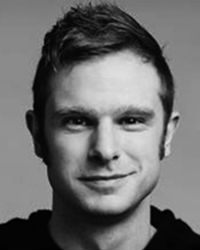Sammen med Bård Vegar Solhjell har jeg i dag nominert Edward Snowden til Nobels fredspris. En fredelig verdensorden forutsetter tillit mellom nasjoner og tillit mellom folk. Moderne informasjonteknologi gir nye mulighet for demokratisering, åpenhet og ytringsfrihet. Men det introduserer også nye verktøy til undertrykking, overvåking og spionasje.
Edward Snowden har bidratt til å avsløre omfanget og de teknologiske mulighetene i moderne overvåking. Jeg støtter ikke nødvendigvis alle Snowdens avsløringer. Men jeg er ikke i tvil om at den offentlige debatten og de politiske endringene som har fulgt i kjølvannet av Snowden-saken har bidratt til en fredeligere og bedre verden.
Her er begrunnelsen jeg sammen med Bård Vegar Solhjell i dag har sendt til Nobelkomiteen:
Nomination for the Nobel Peace Prize
We hereby nominate Edward Snowden for the Nobel Peace Prize.
As former Nobel Peace Prize laureate Mairead Corigan-Maguire said, «peace is more than simply the absence of war; it is the active creation of something better». Our leaders are not merely actors on a global stage of preserving self-interest, they are also political leaders whom we need to trust, and hold accountable. Their responsibilities go beyond realpolitik and zero-sum games, their actions have real consequences for real people.
A peaceful world order depends on trust between nations and trust between people.
The new information technologies of the past few decades bring new possibilities for democratization, transparency and freedom of expression. But it also introduces new tools of oppression, surveillance, and espionage. Massive surveillance of ordinary people’s communication, and targeted surveillance against allied leaders, is now possible on a scale that we wouldn’t be able to imagine two or three decades ago. When democratic countries make widespread use of these possibilities without regard to people’s rights to free expression, and the basic principles of the rule of law, they undermine their own legitimacy, and ability to effectively criticize and change the oppressive politics, massive surveillance, not to mention the cencorship, of authoritarian regimes.
A peaceful world order depends on trust between nations and trust between people. Peace brokering would be impossible without a basic level of trust. International agreements on non-proliferation and disarmament would be impossible without a basic level of trust. And peaceful resolutions to emerging security threats would be impossible without a basic level of trust.
Edward Snowden has revealed the nature and technological prowess of modern surveillance. The level of sophistication and depth of surveillance that citizens all over the world are subject to, has stunned us, and stirred debate all over the world. By doing this, he has contributed critical knowledge about how modern surveillance and intelligence directed towards states and citizens is carried out.
We are convinced that the public debate and changes in policy that have followed in the wake of Snowden’s whistleblowing has contributed to a more stable and peaceful world order.
There is no doubt that the actions of Edward Snowden may have damaged the security interests of several nations in the short term. We do not necessarily condone or support all of his disclosures. We are, however, convinced that the public debate and changes in policy that have followed in the wake of Snowden’s whistleblowing has contributed to a more stable and peaceful world order. His actions have in effect led to the reintroduction of trust and transparency as a leading principle in global security policies. Its value can’t be overestimated.
A country’s legitimate need for reliable intelligence to preserve its own security, must always be balanced against the people’s individual freedoms – and the global need for trust – as an integral condition for stability and peace. Edward Snowden has made a critical contribution to restoring this balance.
Bård Vegar Solhjell, member of the Norwegian Parliament
Snorre Valen, member of the Norwegian Parliament






 The Myth of “Populism” (jacobinmag.com)
The Myth of “Populism” (jacobinmag.com) Coronavirus Recovery Needs a Green New Deal (tribunemag.co.uk)
Coronavirus Recovery Needs a Green New Deal (tribunemag.co.uk) Arundhati Roy: ‘The pandemic is a portal’ (ft.com)
Arundhati Roy: ‘The pandemic is a portal’ (ft.com)

